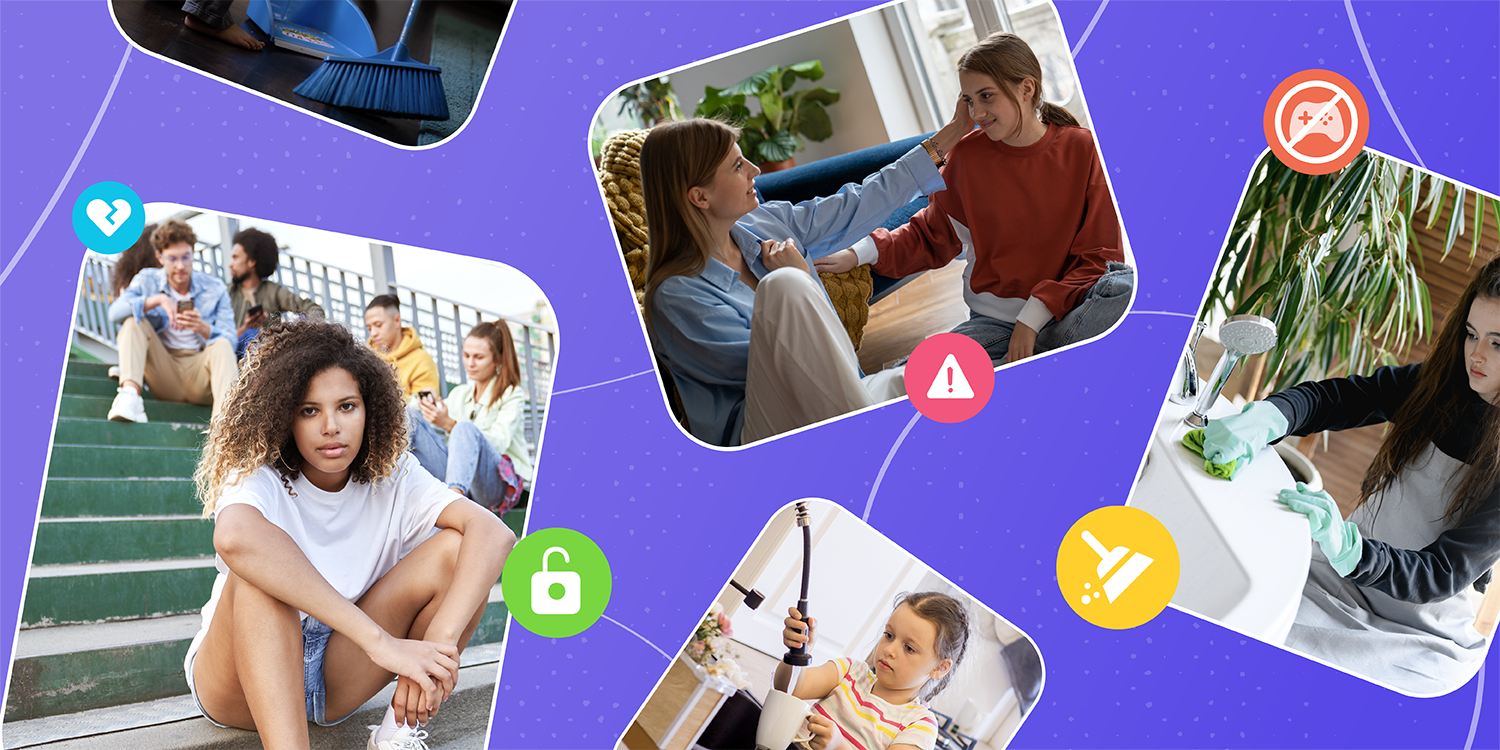We're sure you've been there. Your kid ignored your request to take out the trash for the 10th time, skipped a homework assignment, or talked back to you. Whatever the situation, wasn't it tempting to immediately take away their phone when they misbehaved? After all, that would REALLY get their attention. But, is this actually good parenting? Let's dive in and find out!
Here's the truth. A lot of parents believe that the fear of losing their phone will motivate their kids towards good behavior. However, what they're likely to get when they enforce this punishment is behavior problems. You see, technology is your kid's lifeline to the outside world. We can reminisce about "the good old days" as much as we want but this is the reality we're living in now. Kids' lives are tied up in their phones as their source of friendship, connection, entertainment, and exploration.
Think about the consequences of suddenly cutting your kid off from their entire world just because they forgot to take out the trash. This isn't positive parenting and it's not going to encourage your kid to build a healthy parent-child relationship with you. In fact, it'll probably do the opposite. The emotional backlash could break down your relationship and prevent your kid from coming to you about real issues in the future.
Good parenting focuses on creating a relationship with your kid, not breaking it down.
So, if taking away your kid's phone isn't a positive parenting practice, what is? After all, it's important to discipline our kids when they make mistakes so they can learn and improve.
1) Good parenting focuses on connection before correction.
Before you ground your kid from their phone, stop and take a moment for some self-control. It is completely natural to feel irritated and upset about your kid's misbehavior. However, don't rush into the situation in this state of mind. Take whatever time you need to deal with your own emotions and then reset your mindset.
Now that you've taken care of your emotional health, take your kid aside and have a conversation about what led to their misbehavior. This doesn’t negate the need for punishment but it preserves the valuable connection between you. Maybe there was a larger situation going on that needs to be dealt with. Perhaps your kid had been bullied all day at school and that frustration manifested in talking back to you.
No matter what the situation, allow your kid to fully explain their side. This reinforces the fact that you care for them and helps deepen your positive parent-child relationship.
2) Good parenting focuses on correlating the punishment to the offense.
Imagine this scenario: you've asked your kid to take out the trash multiple times but each time you walk by it, the garbage is sitting there untouched. As frustrating as this situation can be, there's one thing you shouldn't do - take away their phone.
Yes, we get it. You'll immediately get their attention but you’re creating potential for behavior problems in the future. Beth Peters, Ph.D., a clinical psychologist in Westminster, Colorado, who specializes in teens and families, advises, “If your child violates curfew, taking away their phone is completely unrelated to that behavior. You’re not connecting with your child. You’re making them feel bad, which you might think is helping them learn, but in fact, it’s only helping them learn to be sneaky.” 1
So, instead of taking away your kid's phone, focus on positive parenting and relate the punishment to the offense. They didn't take out the trash? Maybe the consequence is that they have more chores for the next week. They ignored their curfew and came home late? Maybe they’re not allowed to go out with friends in the evenings for a few days. Whatever you decide, make sure it's relevant to the mistake they made.
Now, here's an important point. If your kid made their mistake online, taking away their phone can be appropriate punishment but this should be done with the right communication. Explain what made the online behavior wrong and help them understand what they should’ve done differently in the situation. Discuss why you're taking the phone away and when it'll be returned. Even though you're taking away or limiting their access to their phone, you can still do it in a way that preserves your relationship.
3) Good parenting focuses on long-term goals.
Here's the truth. Taking your kid's phone away is often a quick and easy "out" on dealing with a situation. So before you do take it away, think about what your ultimate goal is for your kids. What kind of adult are you trying to raise and does this get you one step closer to that goal?
This is especially true if your kid's mistake was online. Remember that a huge part of parenting is teaching your kid to use their own judgment. As they grow, the point is to continually release more and more responsibility to them so that when they do become adults, they're equipped to be responsible digital citizens. Taking away a phone doesn’t teach them that. Only your involvement equips them to navigate the online world positively.
Good parenting takes work but the result is worth it.
When you incorporate connecting before correcting, correlating to the offense, and focusing on your long-term goals, you'll be prepared the handle a disciplinary situation in the best possible way. Maybe you'll still end up taking your kid's phone away but you'll do so in a way that builds, not destroys, the relationship between you two.
